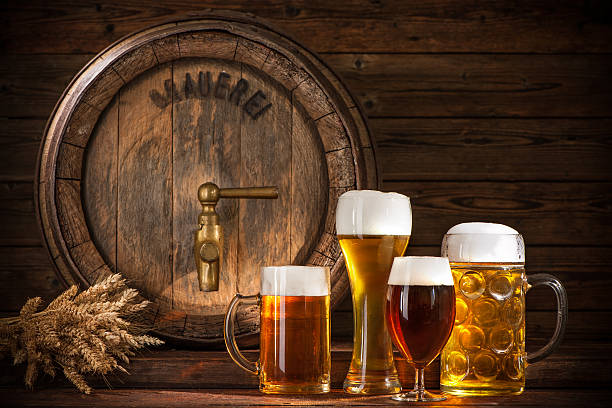Shocking news in the country of beer drinkers: The Munich Environmental Institute found the pesticide glyphosate in the 14 most drunk German beers
So much for the German Purity Law – in a test of the 14 most popular German beers, testers from the Munich Environmental Institute found the weed killer glyphosate in every sample.

According to the Environmental Institute, the values found were between 0.46 micrograms per liter (µg/l) and 29.74 µg/l, in extreme cases almost 300 times the legal limit of 0.1 µg/l for drinking water. The testers found the most glyphosate in beer from the Hasseröder, Jever and Warsteiner brands, and the least in Augustiner, Franziskaner and Becks.
Which beers were tested?
The following beer brands were examined by the institute:
- Krombacher
- Oettinger
- Bitburger
- Veltina
- Becks
- Paulaner
- Warsteiner
- Hasseroder
- Radeberger
- Erdinger
- Augustinian
- Franciscan
- king
- ever
How does glyphosate get into beer?
Glyphosate is the most widely used weed killer in the world. It is also used in a basic ingredient of every beer, namely malt made from barley or wheat, according to the Environmental Institute “in large quantities”.
In the case of grain intended for brewing purposes, “the use of glyphosate to accelerate the ripening process shortly before harvest (…) is prohibited. (…) Stubble treatment, use after harvest and before sowing or until shortly after sowing, however, is permitted.”
How dangerous is glyphosate?
“In absolute numbers, the measured amounts of glyphosate are small,” says the environmental institute. There is no legal limit for the beer itself, only for its ingredients. Here, the values measured by the institute are well below the limit values, for example for malt.
However, the authors of the environmental institute are of the opinion that weed killers have no place in beer, regardless of the concentration.

Experts are by no means clear about how dangerous glyphosate, which was developed by the Monsanto group in the 1970s, really is: while the World Health Organization (WHO) classifies it as “probably carcinogenic”, the experts at the EU Food Safety Authority (EFSA) consider it “probably not carcinogenic”. The German Federal Institute for Risk Assessment (BfR) also shares this opinion but continues to research the plant toxin.
Even if the concentration measured is small and the risk posed by glyphosate has not yet been clarified, the fact that a pesticide is found in a drink that is consumed so often should give us food for thought. As a consequence of the test results, the environmental institute has launched the “Glyphosate out of beer” initiative.
